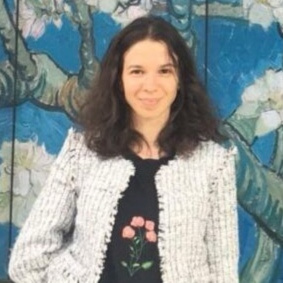In recent years, research on intelligent systems that can explain their inferences and decisions to (human and machine) users has emerged as an important subfield of Artificial Intelligence (AI). In this context, the interest in symbolic and hybrid approaches to AI and their ability to facilitate explainable and trustworthy reasoning and decision-making -- often in combination with machine learning algorithms -- is increasing. Computational argumentation is considered a particularly promising paradigm for facilitating explainable AI (XAI). This trend is reflected by the fact that many researchers who study argumentation have started to:
- apply argumentation as a method of explainable reasoning;
- combine argumentation with other subfields of AI, such as knowledge representation and reasoning (KR) and machine learning (ML), to facilitate the latter's explainability;
- study explainability properties of argumentation.
To get an overview of argumentation and XAI, interested researchers may consult Francesca Toni's invited talk about explainable reasoning at KR 2021, as well as the following survey papers:
- Argumentation and Explainable Artificial Intelligence: A Survey. The Knowledge Engineering Review. 2021.
- Argumentative XAI: A Survey. 30th International Joint Conference on Artificial Intelligence. 2021.
- Argumentation as a Method for Explainable AI: A Systematic Literature Review. 17th Iberian Conference on Information Systems and Technologies. 2022.
- Argumentative Explanation for Deep Learning: A Survey. IEEE International Conference on Unmanned Systems. 2023.
Topics
Topics include, but are not limited to:- Argumentative Explainability
- Formal definitions of explanations
- Defeasible reasoning and explanations
- Computational properties of explanations
- Neuro-symbolic explainable argumentation
- Explanation as a form of argumentation or defeasible reasoning
- Human intelligibility of formal argumentation
- Dialectical, dialogical and conversational explanations
- AI methods to support argumentative explainability
- Analogous topics for other defeasible reasoning approaches
- Argumentation for XAI
- Applications of argumentation for explainability in the fields of AI (e.g. machine learning, machine reasoning, multi-agent systems, natural language processing) and overlapping fields of research (e.g. optimisation, human-computer interaction, philosophy and social sciences)
- User-acceptance and evaluation of argumentation-based explanations
- Software systems that provide argumentation-based explanations
- Applications of other defeasible reasoning approaches to XAI
Program
- 10:30-11:00: Coffee/Arrival Time
- 11:00-11:50: Keynote: Argumentation-based Explanations: How to Benefit from Computational Argumentation in XAI.
Speaker: AnneMarie Borg - 11:50-12:40: Paper Session 1:
- Argumentative Interpretable Image Classification by Hamed Ayoobi, Nico Potyka and Francesca Toni
- Human Compliance with Normative Principles in Argumentation: Effects of Naturalness Bias and Graphical Representation by Marija Petrovic, Predrag Teovanovic, Danka Puric, Bruno Yun, Caren Al Anaissy, Sébastien Konieczny and Srdjan Vesic
- 12:40-13:50: Lunch Break
- 14:00-15:15: Paper Session 2:
- Towards Deontic Explanations Through Dialogue by Kees van Berkel and Christian Strasser
- A General Dialogue Framework for Logic-based Argumentation by Loan Ho and Stefan Schlobach
- Applying Attribution Explanations in Truth-Discovery Quantitative Bipolar Argumentation Frameworks by Xiang Yin, Nico Potyka and Francesca Toni
- 15:30-16:00: Coffee Break
- 16:00-17:00: Discussion: How can we strengthen applications of argumentative explainability?
Moderators: Antonio Rago and Timotheus Kampik
Submission
Submissions should be up to 12 pages in PDF format, including abstract, figures and references, and according to the CEUR-WS template (single column). The reviewing will be single-blind. All submissions will be made electronically, here through the EasyChair conference system.Accepted papers will be included in CEUR-WS workshop proceedings after a careful review process. At least one of the authors will be required to register and attend the COMMA conference to present the paper in order for it to be included in the workshop proceedings.
Important Dates
- Paper submission deadline:
815 July 2024 (AoE) - Notification of acceptance: 12 August 2024
- Camera-ready version: 2 September 2024
- Workshop: 16 September 2024
Organisation
- Kristijonas Čyras, Ericsson Research
- Timotheus Kampik, Umeå University & SAP
- Oana Cocarascu, King’s College London
- Antonio Rago, Imperial College London

|

|

|

|
Kristijonas Čyras |
Timotheus Kampik |
Oana Cocarascu |
Antonio Rago |
| Ericsson | Umeå University & SAP |
King's College London | Imperial College London |
Contact us at argxai24@easychair.org.
Programme Committee
- Alexandros Vassiliades (Aristotle University of Thessaloniki)
- Alison R. Panisson (Federal University of Santa Catarina)
- Antonis Kakas (University of Cyprus)
- Christian Straßer (Ruhr-University Bochum)
- Fernando Tohme (Universidad Nacional del Sur)
- Isabel Sassoon (Brunel University London)
- Jieting Luo (Zhejiang University)
- Johannes Wallner (Graz University of Technology)
- Juan Carlos Nieves (Umeå University)
- Mariela Morveli-Espinoza (Federal University of Technology - Paraná)
- Markus Ulbricht (Leipzig University)
- Nick Bassiliades (Aristotle University of Thessaloniki)
- Nico Potyka (Cardiff University)
- Odinaldo Rodrigues (King’s College London)
- Pietro Baroni (University of Brescia)
- Roberta Calegari (University of Bologna)
- Simon Parsons (University of Lincoln)
- Tjitze Rienstra (Maastricht University)
- Tony Hunter (University College London)
- Wijnand van Woerkom (Utrecht University)
- Madeleine Waller (King’s College London)
- Elfia Bezou Vrakatseli (King’s College London)
- AnneMarie Borg (Utrecht University)
- Srdjan Vesic (CRIL)
- Gianvincenzo Alfano (University of Calabria)
- Yun Zhou (College of Systems Engineering National University of Defense Technology)
- Guilherme Paulino-Passos (Imperial College London)
- Jesse Heyninck (Open Universiteit, Heerlen)
- Xiang Yin (Imperial College London)
- Nikolaos Spanoudakis (Technical University of Crete)
- Davide Ceolin (CWI, Netherlands)
- Loan Ho (Vrije University, Amsterdam)
- Lars Bengel (Fern University, Hagen)
- Lydia Blümel (Fern University, Hagen)
- Federico Castagna (University of Lincoln)
- Andreas Xydis (University of Lincoln)
- Anna Rapberger (Imperial College London)
Sponsors



We thank CEUR-WS.org for supporting this workshop.